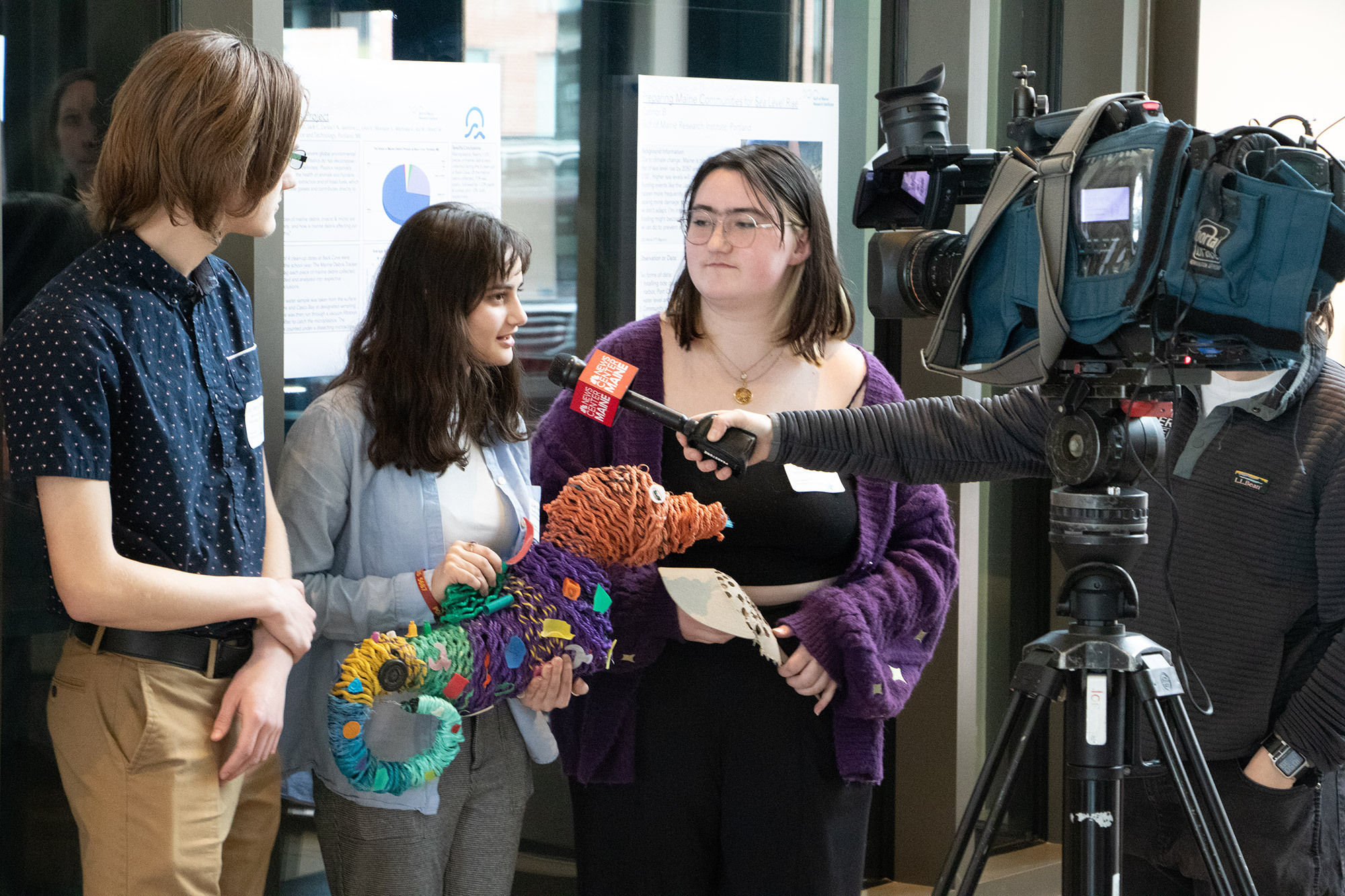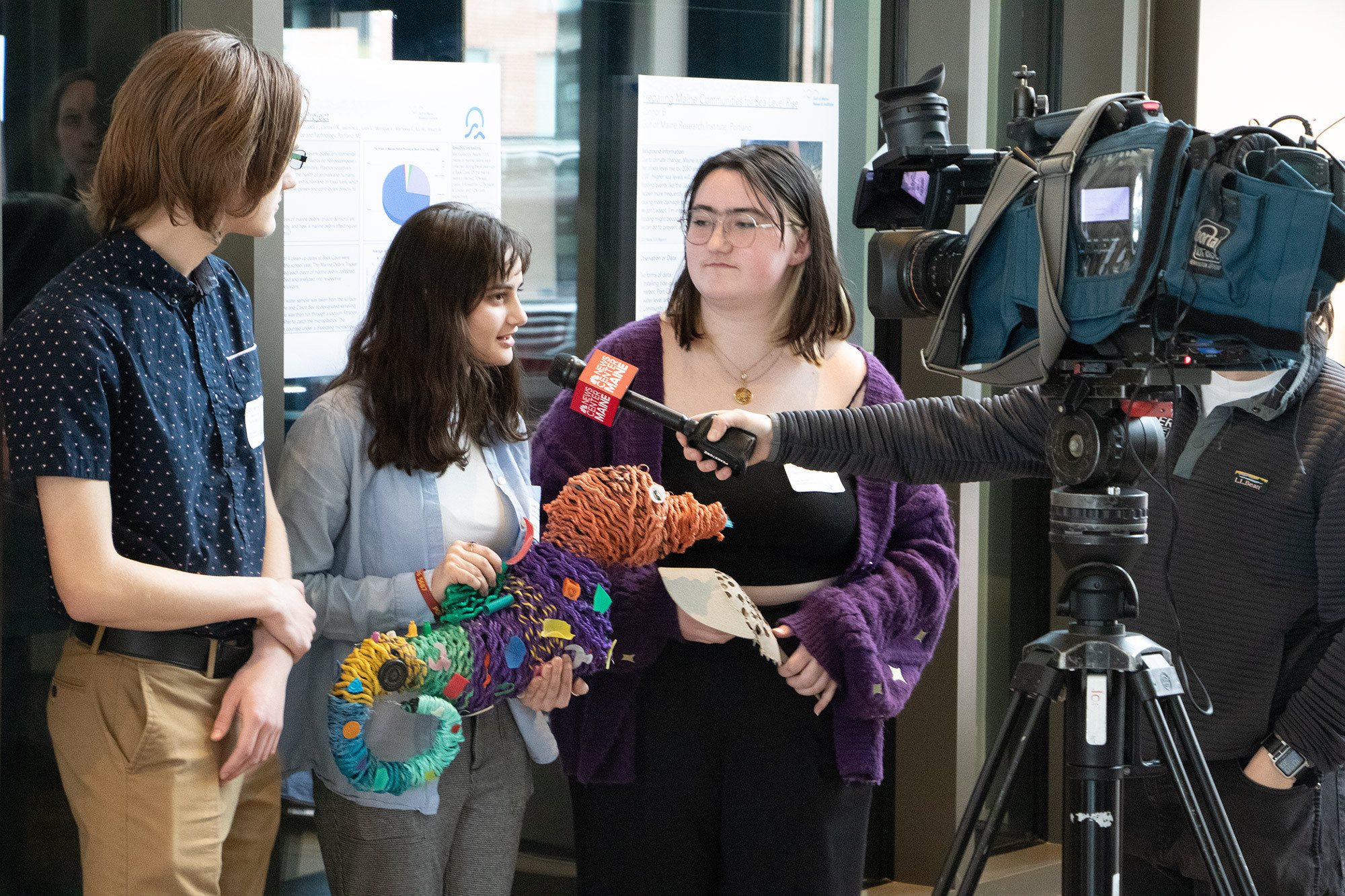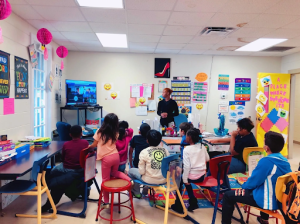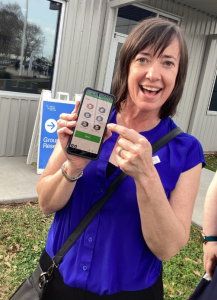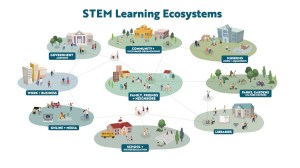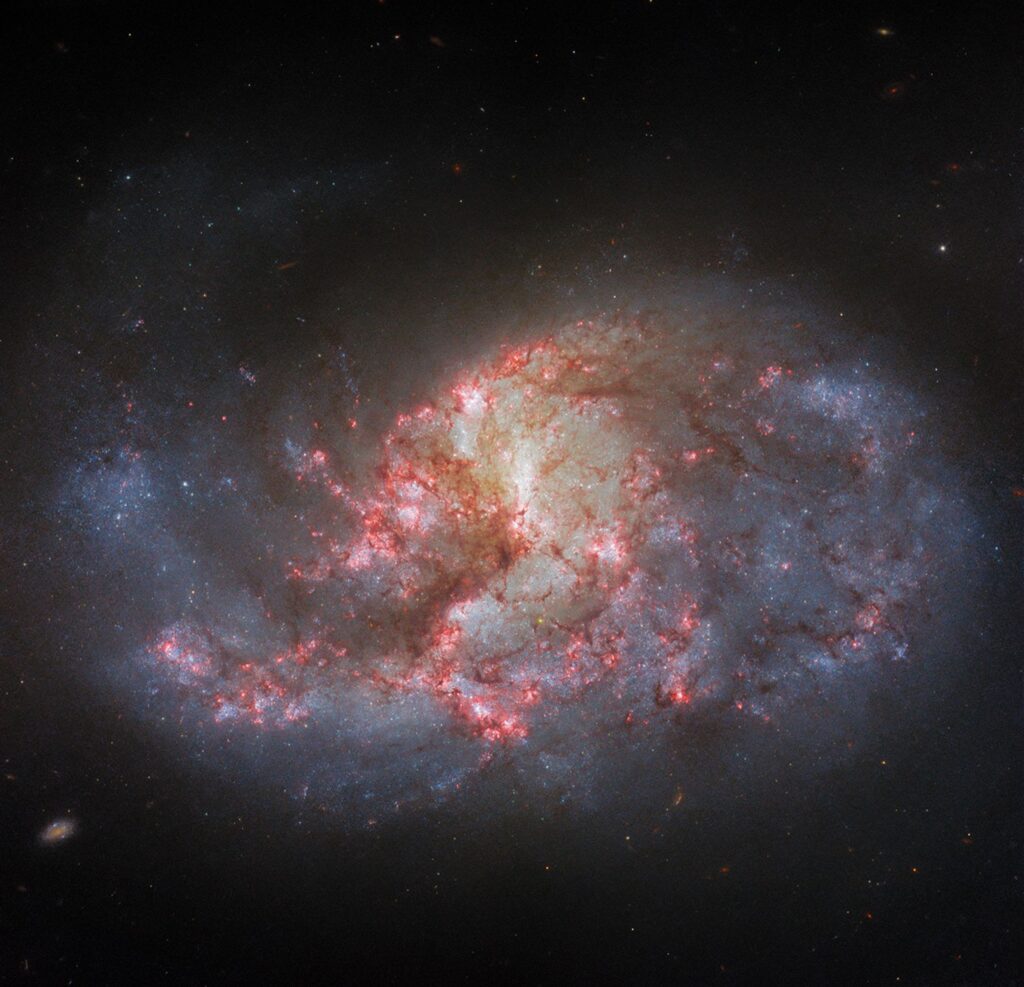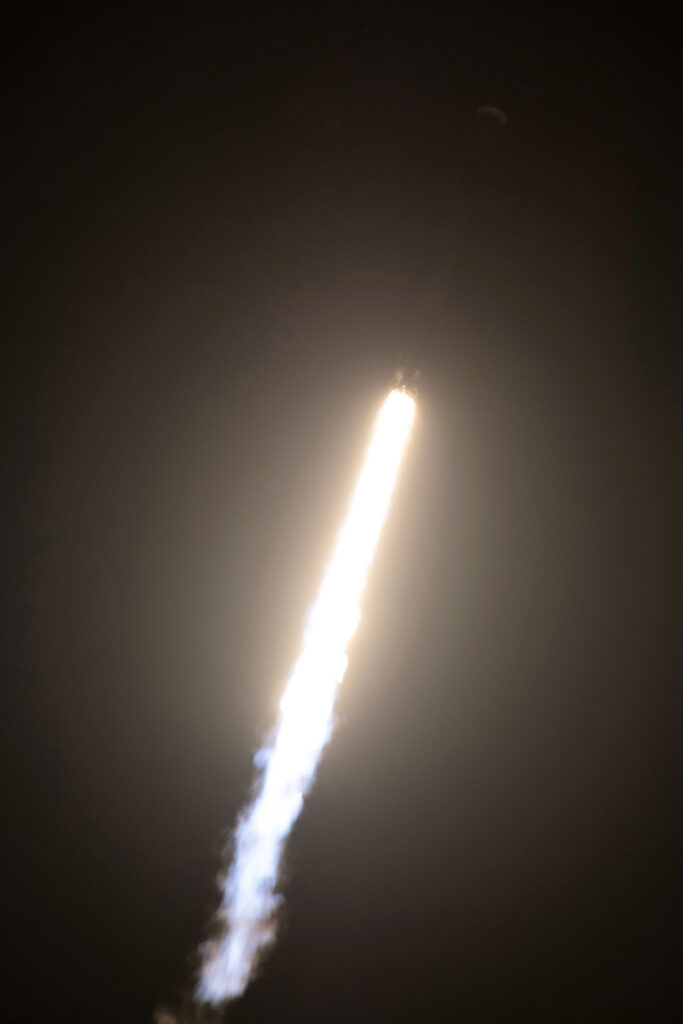2 min read
Findings from the Field: Students and Professionals Connect at Research Symposium
On March 18, 2024, 65 middle and high school scientists gathered at the Gulf of Maine Research Institute (GMRI) in Portland, Maine to share their science research projects with one another and with professional scientists from GMRI, Mount Washington Observatory (MWOBS), and NASA Jet Propulsion Laboratory. GMRI is the anchor institution for the NASA Science Activation Program’s Learning Ecosystems Northeast (LENE) project, which supports Findings from the Field, a journal of student scientific research. Annually, youth submitting research to the journal have the opportunity to come together to share their work during the Student Research Symposium.
This year, student and professional scientists alike prepared and delivered lightning talks and discussed their research during poster sessions. This year’s symposium featured student research on invasive green crabs, smelt population estimates using eDNA technology, climate impacts on bees and blueberries, ocean plastics, and more. Presentations by five early career scientists from GMRI and MWOBS provided an opportunity for youth to talk with near-peer role models. The program featured a scientific talk by Brandon Rodriguez from NASA’s Jet Propulsion Laboratory that inspired youth to think about the breadth of possibilities for working in planetary science. It was an exciting day for all, topped off with evening news coverage on three local television channels! Volume 7 of Findings from the Field will be released later this spring after students complete the journal’s peer review process and polish up their pieces for publication.
Odin Bravo from Baxter Academy in Portland, Maine, said, “I plan on going into science for my career, so being able to do something outside of school like this is very helpful to get me ready and to get feedback to make me better.”
The Learning Ecosystems Northeast project is supported by NASA under cooperative agreement award number NNX16AB94A and is part of NASA’s Science Activation Portfolio. To learn more, visit: https://science.nasa.gov/sciact-team/gmri/
